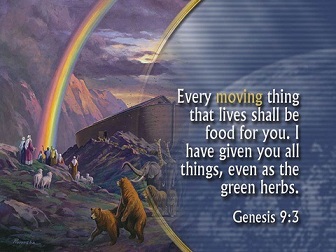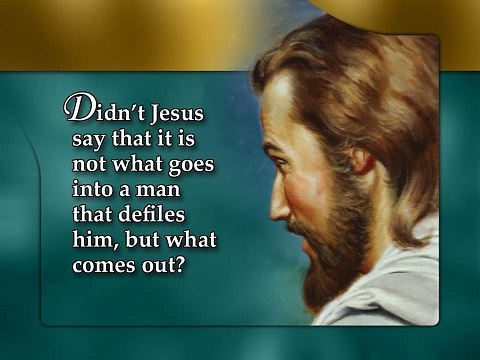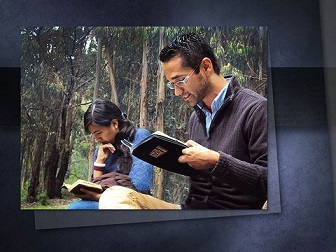
'What God hath cleansed, that call not thou common': an exposition on Peter's vision in Acts 10

Samuel Smith
23 Jan'19
5
LESSON 6
WHAT GOD HATH CLEANSED, THAT CALL NOT THOU COMMON: AN EXPOSITION ON PETER'S VISION IN ACTS 10
You are welcome to another edition of Insights from God's Word, a Bible study programme that is committed to sharing God's Word by allowing the Bible to speak for itself.In this edition, we continue with our series on How to Prosper in Health. The topic for this study is: "What God hath cleansed, that call not thou common": an exposition on Peter's vision in
1) PETER'S JEWISH BACKGROUND: A HINDRANCE TO THE GOSPEL COMMISSION
For us to understand the message of Peter's vision inInstead of embarking on their God-giving commission of bringing the Gentiles to knowledge of the true God, the Jews however derided the Gentiles as heathens and held negative prejudices in regard to them. The Jews would not keep company or come into the house of a Gentile (see the story of the centurion in
Friends, even though Christ had given the gospel commission to the disciples and poured on them the Holy Spirit, this prejudice that the Jews exercised towards the Gentiles was still ingrained in the hearts of the disciples, and had actually become a stumbling block that sought to destroy the work of the gospel. It is important to note that even though Peter was an apostle of Christ and leader of the early church, he was yet to overcome the negative prejudice that the Jews exercised towards the Gentiles (see
Beloved, at this point in the history of the early church, the Lord realised that the negative attitude that His believers exercised towards the Gentiles had to be broken down if they would be able to take the gospel message to the ends of the world. The Lord decided to remove this prejudice in His people by giving them a pointed message through the apostle Peter. This is the background wherein the story of Peter (the Jew), and Cornelius (the Gentile) is set. I believe this background will help us to make good progress in our study.
2) AN ANALYSIS OF THE PASSAGE OF CONTENTION
Now that we have the background of Peter's vision in10:1 There was a certain man in Caesarea called Cornelius, a centurion of the band called the Italian band,
Key Explanation: Cornelius was a Gentile soldier who had authority over the Italian band.
10:2 A devout man, and one that feared God with all his house, which gave much alms to the people, and prayed to God alway.
10:3 He saw in a vision evidently about the ninth hour of the day an angel of God coming in to him, and saying unto him, Cornelius.
10:4 And when he looked on him, he was afraid, and said, What is it, Lord? And he said unto him, Thy prayers and thine alms are come up for a memorial before God.
10:5 And now send men to Joppa, and call for one Simon, whose surname is Peter:
10:6 He lodgeth with one Simon a tanner, whose house is by the sea side: he shall tell thee what thou oughtest to do.
10:7 And when the angel which spake unto Cornelius was departed, he called two of his household servants, and a devout soldier of them that waited on him continually;
Key Explanation: Cornelius sent three Gentiles to Peter. It is important that we keep in mind the number three. It will come up again in the chapter.
10:8 And when he had declared all these things unto them, he sent them to Joppa.
10:9 On the morrow, as they went on their journey, and drew nigh unto the city, Peter went up upon the housetop to pray about the sixth hour:
10:10 And he became very hungry, and would have eaten: but while they made ready, he fell into a trance,
10:11 And saw heaven opened, and a certain vessel descending upon him, as it had been a great sheet knit at the four corners, and let down to the earth:
10:12 Wherein were all manner of fourfooted beasts of the earth, and wild beasts, and creeping things, and fowls of the air.
10:13 And there came a voice to him, Rise, Peter; kill, and eat.
10:14 But Peter said, Not so, Lord; for I have never eaten any thing that is common or unclean.
Key Explanation: From this text, we gather the clear point that Peter had never used any unclean animal as food in his lifetime. Not even after the death and ascension of Christ. Beloved, if Christ had given the disciples the liberty to use unclean animals as food, Peter would not have held on to the dietary distinction between clean and unclean animals after Christ had ascended to heaven. However, since it is clear here that the Lord did not give them any such command, the apostle Peter continued to remain resolute in keeping the dietary law of God. As we will see in the verses 15 and 16, not even a message from heaven in a vision would persuade him to make use of an unclean animal as food.
10:15 And the voice spake unto him again the second time, What God hath cleansed, that call not thou common.
Key Explanation: Many in Christendom make use of this text to argue that the Lord has cleansed all animals and therefore every animal is fit for consumption. But the rest of the chapter has something different to tell us. Let’s keep moving.
10:16 This was done THRICE: and the vessel was received up again into heaven.
Key Explanation: It is important to note that God repeated the same message about making use of unclean flesh to Peter three times before the vessel was received up into heaven. The number three here is very significant. It would come up again.
10:17 NOW WHILE PETER DOUBTED IN HIMSELF WHAT THIS VISION WHICH HE HAD SEEN SHOULD MEAN, behold, the men which were sent from Cornelius had made enquiry for Simon's house, and stood before the gate,
Key Explanation: After Peter came out of this vision, he didn't think that he had been given the liberty to now make use of unclean food. The text said he doubted in himself what this vision which he had seen should mean. In other words, he realized that this vision was not literal but that God was trying to communicate something important to him.
10:18 And called, and asked whether Simon, which was surnamed Peter, were lodged there.
10:19 While Peter thought on the vision, the Spirit said unto him, Behold, THREE men seek thee.
Key Explanation: Once again, we come across the number three again. By the principle of direct correlation, it is very clear that the three Gentile men who were sent from Cornelius to Peter were the ones that were symbolized in Peter's vision three times as unclean animals that he had to kill and eat. For in as much as the Jews loathed unclean animals so was their attitude towards Gentiles. Through this clear pointed vision, the Lord taught the leader of the early church to break down the prejudice that he still held toward the Gentiles. From the subsequent verses we read the following:
10:20 Arise therefore, and get thee down, and go with them, doubting nothing: for I have sent them.
Key Explanation: In this text, the Holy Spirit clearly made Peter aware that he should not treat the three Gentile men as he would treat the unclean animals he saw in the vision; for it was He the Lord that had sent them.
10:21 Then Peter went down to the men which were sent unto him from Cornelius; and said, Behold, I am he whom ye seek: what is the cause wherefore ye are come?
10:22 And they said, Cornelius the centurion, a just man, and one that feareth God, and of good report among all the nation of the Jews, was warned from God by an holy angel to send for thee into his house, and to hear words of thee.
10:23 Then called he them in, and lodged them. And on the morrow Peter went away with them, and certain brethren from Joppa accompanied him.
10:24 And the morrow after they entered into Caesarea. And Cornelius waited for them, and he had called together his kinsmen and near friends.
10:25 And as Peter was coming in, Cornelius met him, and fell down at his feet, and worshipped him.
10:26 But Peter took him up, saying, Stand up; I myself also am a man.
10:27 And as he talked with him, he went in, and found many that were come together.
10:28 And he said unto them, Ye know how that it is an unlawful thing for a man that is a Jew to keep company, or come unto one of another nation; BUT GOD HATH SHEWED ME THAT I SHOULD NOT CALL ANY MAN COMMON OR UNCLEAN.
Key Explanation: From this verse, we learn clearly that the vision that God gave Peter had nothing to do with the supposed Christian liberty to eat unclean animals. Peter himself declared that God had shown him (of course in the vision) that he should not call any man common or unclean. Friends, this text makes it clear that the unclean animals Peter was directed to kill and eat represented the Gentiles. Through this vision God sought to break down the strong prejudice that His people held towards the Gentiles so that the gospel can be proclaimed to the ends of the world. After Peter had made the emphatic statement in verse 28 above, He went ahead to preach Christ to this Gentile gathering, something he would have never dreamed of doing earlier. The subsequent verses of the story particularly verses 34 and 35 shed more light on the point I have tried very hard to establish:
10:34 Then Peter opened his mouth, and said, Of a truth I perceive that God is no respecter of persons:
10:35 But in every nation he that feareth him, and worketh righteousness, is accepted with him.
(
3) Beloved, from the scriptural passages we have reviewed so far, it is clear that Peter's vision in Acts 10 has nothing to do with the supposed permission from the Lord for mankind to make use of the unclean animal species as food. As we have noted already in this study, Peter himself made it clear to Cornelius that God hath shewed him in a vision that he should not call any man common or unclean (
Exhortation: "For the LORD God is a sun and shield: the LORD will give grace and glory: no good thing will he withhold from them that walk uprightly. O LORD of hosts, blessed is the man that trusteth in thee" (
In our next study, we will consider the topic: "Let no man therefore judge you in meat, or in drink, ...": an exposition on Paul's words in
Stay blessed and keep shining for King Jesus.
Maranatha!
Powered by White Throne Ministries














